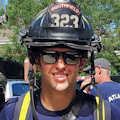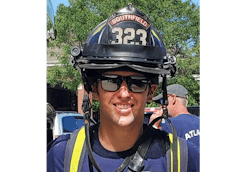Firefighters Need the Proper Mindset for Those 'Non-Emergency' Calls
We all have responded to “those” calls for service—automatic fire alarms, odors of something and someone who calls 9-1-1 for an issue that we—and most others, quite frankly—don’t consider an emergency. We have been there for EMS calls when the patient was absolutely fine in the end. We have been on our “frequent flyers,” summoned for the same problem every time.
What’s your department’s view on these types of runs? What’s your own personal view? One’s mindset for responding to these calls for service can positively or negatively affect the culture of the organization.
Automatic fire alarms
My department goes on hundreds of automatic fire alarm (AFA) calls annually. Fortunately, we take a mindset that it’s the real thing until we know that it isn’t because we are on scene or we hear from someone who’s reputable who’s on scene. Commercial AFAs get a three-station response, and residential AFAs get a single-station response—priority response, that is.
There are mixed opinions on priority responses from members throughout the fire service, mostly that they put citizens who are on the roadways and us at an increased risk without confirmation of an actual fire event.
Now, I won’t dive any deeper into that particular topic, because it could be debated forever, but I will share a very valuable piece of information I got from a battalion chief who I highly respect.
Expect a fire
The battalion chief posed a question to me one late night at the kitchen table. He asked, “What is the point of an AFA?” Well, the point of an AFA is to automatically alert of a fire, whether that be as a result of someone activating a pull station or of waterflow from a sprinkler system. Therefore, the alarm should be treated as if it’s operating properly.
Fire suppression personnel must respect that a fire protection engineer designed a system to do exactly that. We should respond, position and go to work with the expectation that when we enter the first door, we will be met with smoke. If it’s nothing, it’s practice.
Smoke and odor calls
My department responds to plenty of calls about smoke and odor—the odor of smoke with nothing seen, the odor of natural gas, and the occasional passer-by who requests that we check out smoke that’s seen in an area. I presume that most of the American fire service does, too.
We should have the same mindset with these as we do with AFAs to set us up for success.
Now, granted, some judgement is needed based on information that’s at hand in terms of whether the call warrants a priority response. Often, callers don’t give all of the information to the 9-1-1 call-taker during their brief conversation. Furthermore, a lot of 9-1-1 callers use the system only once in their life, and, quite frankly, it’s an emergency in their mind.
Take a second to determine where your organization’s and your personal mindsets are at on this. Here’s an example to perhaps help you in the right direction.
Not long ago, my crew was dispatched to a report of smoke coming from around the chimney of the neighboring house of a 9-1-1 caller—a regular one-station response in my department. The caller stated that the smoke was getting lighter but would like it to be checked out.
My crew of four rolled up on smoke showing from the gables. The smoke banked down to waist-level after the front door was forced.
Were we ready? Yes, because we anticipated a fire event. We had our gear on, we positioned appropriately, and we did all of the things that we do when we respond to a confirmed structure fire.
Don’t let complacency get the best of you. If it turns out to be nothing, at least you have another rep under your belt.
‘Nuisance’ runs
What do people do when they don’t know what to do? They call the fire department. We are the last—or first—resort for our citizens—the people who we took an oath to serve—when they have an issue that can’t be solved.
Take, for example, the lift-assist or the water leak run. It’s common for a lot of firefighters to complain when the bells go off for these runs. We know that the circumstance that prompted the 9-1-1 call isn’t emergent, but it is to the person who is experiencing the problem (e.g., Ms. Smith, who fell to the floor and is alone and who finally reached the phone, and the elderly couple who are afraid that their bathroom will flood if they can’t fix their leak). Although it might not warrant a priority response and a box-alarm, it warrants our urgency and professionalism every single time.
Furthermore, these types of runs can have a very positive or negative effect for an organization in the public’s eye.
‘I don’t feel well’
Let’s talk about EMS. Yeah, I’m going there.
Most of us do it. The majority of us who do it are good at it, too, and take pride in providing a high level of care for our citizens.
All EMTs and paramedics like a call where their skills can be put to use, where they make a real difference in the outcome of a person’s life. Fewer EMTs and paramedics like responding to patients who have an upset stomach or just want to be checked out.
We don’t know in depth the lives of the people who we serve. We don’t know their backgrounds. We must resist making very quick assumptions. These people might have no better option than to call 9-1-1 for a low-priority issue. These people might have no other outlet or resource for care. Although that isn’t what the system was designed for, we are obligated to respond and to assist these people in their time of need—not to mention the patient who “didn’t feel well” who ended up having a life-threating condition that was found after an assessment.
Interact with these patients. Find out what they are about. Interaction can make all the difference. Do your diligence. Serve them well.
Mindset
Where does this all tie together? Mindset.
Culture is so important in all facets of what we do. It defines who we are, and it’s a lot easier to start improvements at the crew level than in the fire service as a whole. A mindset of “It’s just another fire alarm” or “This patient again?!” speaks volumes of the professionalism—or lack thereof—of a group or an individual.
Responding to an AFA half-dressed or without gear is betting that the building has no fire condition inside. Treating odors of something burning or odors of gas in a less-than-full-commitment way can be deadly. Treating patients without empathy or consideration in their time of need isn’t just unprofessional, it’s rude. Acting as though it’s an inconvenience to check out a leaky faucet at 3 a.m. is unacceptable. It’s your job!
Even if you can’t swing your crew’s or department’s mindset, you can swing your own. We all have bad days, but that shouldn’t change how you respond while doing your duty. What is your mindset? Are you expecting the real deal when you show up? Are you upholding the oath that you took?
About the Author

Rick Bova
Rick Bova has been in the fire service for seven years. He currently serves as a firefighter/paramedic with the Southfield, MI, Fire Department. Bova holds a bachelor’s degree in fire science from Lake Superior State University. He instructs at his local fire academy.
